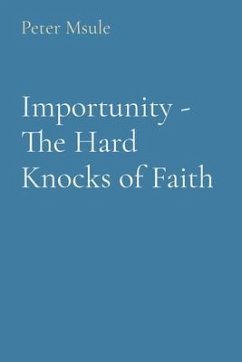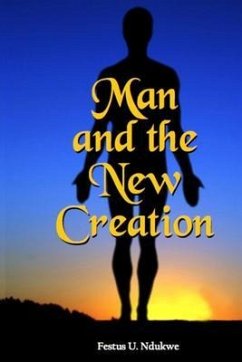
BEHIND THE BEARDS AND CLOAKS - MINISTRY TO RELIGIOUS CLERICS (eBook, ePUB)
Versandkostenfrei!
Sofort per Download lieferbar
12,95 €
inkl. MwSt.
Weitere Ausgaben:

PAYBACK Punkte
6 °P sammeln!
In many church planting situations, across agencies and fields of service, the men behind beards and cloaks are a neglected species. The "world" of the Mu'allims, Imams and other Islamic authorities is not usually penetrated strategically and tactfully enough in order for them to be confronted with the claims of Christ. These men often rule over unofficial sheikhdoms and emirates, and they are the most influential, powerful, and almost inerrant components of religion, politics and everyday life among many Muslim unreached people groups. They are the watchdogs of religious affairs. They are the...
In many church planting situations, across agencies and fields of service, the men behind beards and cloaks are a neglected species. The "world" of the Mu'allims, Imams and other Islamic authorities is not usually penetrated strategically and tactfully enough in order for them to be confronted with the claims of Christ. These men often rule over unofficial sheikhdoms and emirates, and they are the most influential, powerful, and almost inerrant components of religion, politics and everyday life among many Muslim unreached people groups. They are the watchdogs of religious affairs. They are the most revered figures among the people. Most of the Muslims we deal with are overtly or covertly controlled, influenced, inspired and directed by a cleric. Issues of life ranging from family matters to work, even such mundane things as farming and travelling, are brought before them for counsel and direction. Whatever they say is adhered to without question. It is interesting to note that when dealing with very similar men in His day, Jesus aptly referred to them as "blind leaders of the blind" [Mat. 15:14a]. Part of our commission is to go and "open the eyes that are blind".
Despite their importance and community power, these men are grossly omitted in our church planting drive in many places. The reasons behind this neglect include, but are not limited to the following:
· They are difficult to deal with, perceived to be diabolical and spiritually dangerous.
· They are feared by many workers. Their religious appearance and position give the impression that they are unapproachable, impenetrable, and will have nothing to do with our gospel.
· They are perceived to be aggressive and volatile.
· They are always surrounded by people consulting with them, so they appear to be too busy for friendship with workers of the kingdom of God.
· The beards and cloaks of Islamic authorities have created an image of impossible people, and so their reward is usually neglect or exclusion from efforts to extend God's kingdom. We are, in most cases, comfortable to deal with those under their influence, but tend to avoid or shrink from the clerics themselves.
And the reasons go on and on.
True as these reasons may be, they are man-made. But God sees and thinks differently. He sees them as ordinary men, deformed and misshapen by sin, made to look complicated by cloaks of religion. They have been born and bred into a religion that is aggressively opposing the establishment of God's kingdom here on earth. Yet He sees them as His creatures, bearers of His image, and as such ones that must hear the gospel of the kingdom before the end comes.
At the same time, He doubtlessly is aware that many of them are not willing to enter and will not allow those who want to enter to do so. But God did not neglect them, as evident in the church-planting pattern He showed us in His Son Jesus. In fact, from as early as twelve years, He made His Son to see them as part of His "father's business." Unfortunately, what Jesus understood as part of His "father's business" is grossly neglected by many church planters. So we should ask ourselves, "Are we building according to Jesus' pattern or one that we have drawn for ourselves?"
Despite their importance and community power, these men are grossly omitted in our church planting drive in many places. The reasons behind this neglect include, but are not limited to the following:
· They are difficult to deal with, perceived to be diabolical and spiritually dangerous.
· They are feared by many workers. Their religious appearance and position give the impression that they are unapproachable, impenetrable, and will have nothing to do with our gospel.
· They are perceived to be aggressive and volatile.
· They are always surrounded by people consulting with them, so they appear to be too busy for friendship with workers of the kingdom of God.
· The beards and cloaks of Islamic authorities have created an image of impossible people, and so their reward is usually neglect or exclusion from efforts to extend God's kingdom. We are, in most cases, comfortable to deal with those under their influence, but tend to avoid or shrink from the clerics themselves.
And the reasons go on and on.
True as these reasons may be, they are man-made. But God sees and thinks differently. He sees them as ordinary men, deformed and misshapen by sin, made to look complicated by cloaks of religion. They have been born and bred into a religion that is aggressively opposing the establishment of God's kingdom here on earth. Yet He sees them as His creatures, bearers of His image, and as such ones that must hear the gospel of the kingdom before the end comes.
At the same time, He doubtlessly is aware that many of them are not willing to enter and will not allow those who want to enter to do so. But God did not neglect them, as evident in the church-planting pattern He showed us in His Son Jesus. In fact, from as early as twelve years, He made His Son to see them as part of His "father's business." Unfortunately, what Jesus understood as part of His "father's business" is grossly neglected by many church planters. So we should ask ourselves, "Are we building according to Jesus' pattern or one that we have drawn for ourselves?"
Dieser Download kann aus rechtlichen Gründen nur mit Rechnungsadresse in A, D ausgeliefert werden.













